The skill to listen effectively is the key to academic achievement, social cohesion, and professional success in the future. Beyond mere hearing, effective listening also calls for comprehension, interpretation, memory, and the power of response.That this skill is crucial for students in relation to their teachers has long been known, but the skill, by itself, is not easy to quantify or evaluate through mere methods. This is where skill assessment software proves to be the effective tool, giving teachers the innovative, efficient means of assessing, as well as enriching, the ability of their students, in hearing as well as in processing.
Listening skill assessment software delivers a formatted, frequently interactive platform for evaluating performance in many dimensions of listening competence. Such software surpasses simple recall, frequently involving varied audio presentation, accents, speaking rates, and types of questions in testing genuine comprehension. These tools may also quantify a student’s strength in picking up main points, recognizing detailed information, drawing inferences, determining speaker intent, as well as detecting tones and emotions expressed through speech. By utilizing technology, such software has several advantages over traditional pencil-and-paper listening assessments. It can deliver immediate feedback, automate grading, monitor individual student performance over time, and deliver valuable data insights capable of informing customized instruction and individual learning plans. This technology-enabled shift in assessment helps teachers gain a more in-depth, unvarnished perception of their students’ listening skill, leading the way for better instruction and improved academic achievement.
- Value of Highly Effective Listening Skills
- What Are Listening Skill Assessments?
- Usages of Listening Assessments in Education
- 9 Best Listening Skill Assessment Software for Teachers
- How to Make A Listening Skill Quiz with Audio in OnlineExamMaker?
Value of Highly Effective Listening Skills
The value of highly effective listening skills reaches far beyond the school walls. In school, effective listening plays a vital role in comprehension of class lectures, discussions, instructions, and peer collaboration. Students who are not good at listening might struggle with learning important concepts, doing assignments correctly, and being fully involved in the learning process. In addition, in professional environments, effective listening skills in the future will be paramount in effective communications with the boss, colleagues, and clients, in teamwork, conflict management, and professional success. In daily life, active listening leads not only to empathy, but also helps embellish human relations, and build strong, honest, and open relationships with people. With the widespread influence of listening skills, teachers are demanding more efficient and trustworthy methods of evaluation and development of this vital skill.
Listening skills assessment software is a timely, effective solution, allowing instructors to get a good idea of their students’ skills, as well as adopting effective methods of improving their students in this area, leading them to be better, attentive, understanding, and therefore, more successful in all their undertakings. With the advancement of time towards the year 2025, these computer programs are set to become a vital tool in the hand of professional teachers who are dedicated to developing well-rounded, effective communicators.
What Are Listening Skill Assessments?
Listening skill tests are structured methods of evaluating a person’s competence at accurately hearing, interpreting, and comprehending spoken information. Tests of this nature are not just a matter of ascertaining whether a person can hear, but rather examine the cognitive operations involved in the comprehension of auditory information. The full range of facets of listening competence is usually tested in a listening skill assessment, from the identification of main points, comprehension of detailed information, drawing inferences, recognition of purpose and tone expressed by the speaker, following instructions, to distinguishing between facts and opinions. The presentation of these tests can also vary enormously, from short audio extracts plus multiple choice questions through more advanced exercises involving note-taking, summarizing, or reacting to more lengthy spoken passages. Workable tests of listening skill tend also to include varied accents, speech rates, and sound qualities in order to represent real-life communications. The aim of these tests is to produce a sound, reliable, and valid assessment of a person’s skills in comprehension through listening, giving some indication of a person’s strengths and weaknesses.
Usages of Listening Assessments in Education
Listening tests fulfill a variety of useful functions in the academic environment. First, they give teachers valuable diagnostic feedback regarding students’ levels of auditory comprehension. This enables teachers to identify students who are having trouble hearing and respond by modifying instruction appropriately, delivering special support and interventions in response to identified weaknesses.
Second, listening tests can be used to monitor students’ long-term progress, illustrating the value of instructional approaches designed to enhance hearing skills. By giving tests at intervals, teachers can observe growth and change, modifying approaches when necessary.
Third, the tests can be used in curriculum design, ensuring hearing activities and tasks are sufficiently challenging and aligned with learning outcomes. They can also be used for placement, directing the instructional level a student should be placed in according to hearing skill.
Fourth, results from listening tests can be given back to students, giving them a sense of awareness of their hearing strengths and where they can improve, leading to self-reflection and metacognitive development. Lastly, in a more interconnected world, the testing of hearing across languages and contexts can be instrumental in equipping students for intercultural conversation and future international opportunities.
9 Best Listening Skill Assessment Software for Teachers
- 1. OnlineExamMaker
- 2. iSpring
- 3. Testmoz
- 4. Quizizz
- 5. Kahoot!
- 6. ClassMarker
- 7. ProProfs
- 8. EasyTestMaker
- 9. Formplus
Below are nine of the top listening skill evaluation software tools teachers can use in 2025 in order to effectively assess and improve their students’ listening skills.
1. OnlineExamMaker
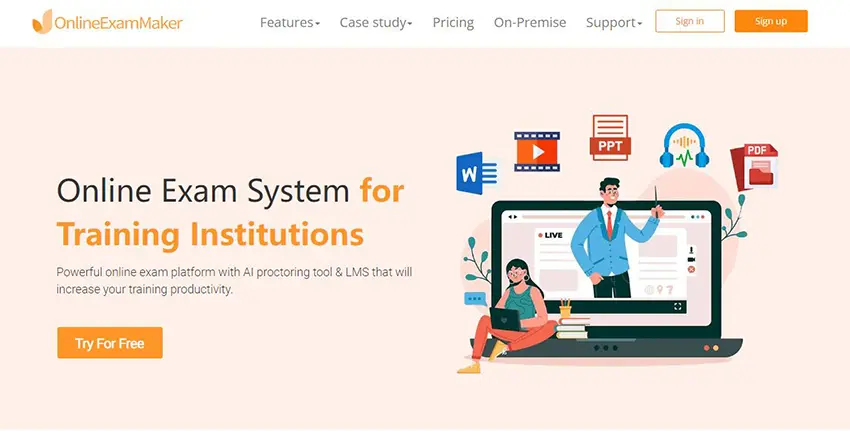
G2 Rating: 4.7/5
Key Features:
● Inert audio or video into the listening asessment.
● Simply copy and insert a few lines of embed codes to display your online exams on your website or WordPress blog.
● Automated scoring and and instant reporting for teachers and students.
● Create certificates with personalized company logo, certificate title, description, date, and candidate’s name.
OnlineExamMaker enables instructors to design in-depth listening skill tests by simply inserting sound files into multiple types of questions. It has automated scoring as well as in-depth reports for monitoring student performance and determining where they should improve.
Teacher can easily add video or audio into the assessment to create interactive testing experience for learners. More over, the system allow exam takers to answer a question by uploading a video, audio document.
Create Your Next Quiz/Exam with OnlineExamMaker
2. iSpring Suite
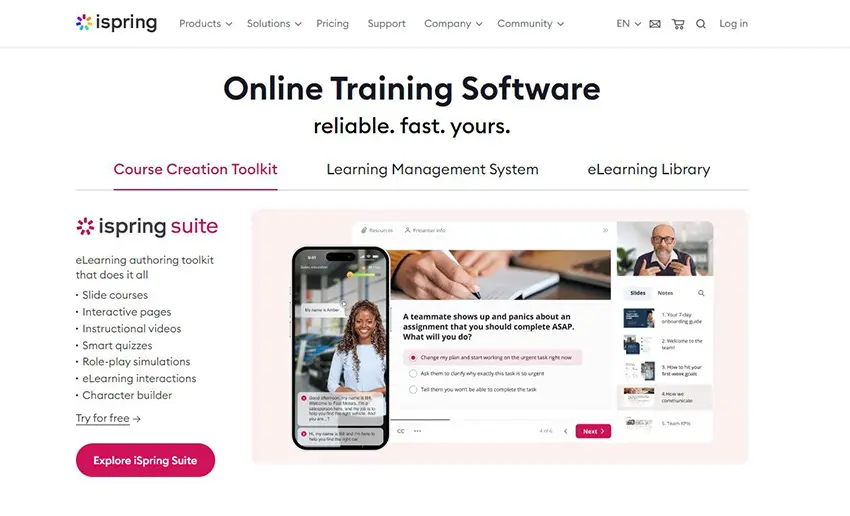
Capterra Rating: 4.6/5
Key Features:
● Time limits and countdown timers for timed listening skills assessments.
● Multimedia support with images, audio, and video integration.
● Wide range of question types for interactive quizzes.
iSpring Suite allows teachers to create dynamic, interactive listening tests with branching scenarios, voiceover narration, and screen recordings. It has effortless integration with the LMS, ensuring users can easily deploy and administer quizzes in their current learning environments.
3. Testmoz
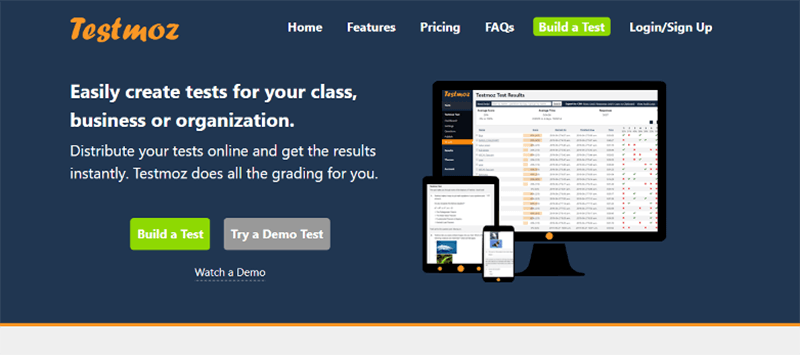
G2 Rating: 4.0/5
Key Features:
● Simple audio embedding for listening questions.
● Adaptive and instant feedback for learning.
● Randomization of question order to prevent bias.
This simple platform allows teachers to easily build listening quizzes through the integration of audio files within questions. It has customizable feedback options and a basic free plan, the tool proves useful in fulfilling basic assessment requirements.
4. Quizizz
Capterra Rating: 4.7/5
Key Features:
● Conduct quizzes in real-time or assign them as homework for self-paced learning.
● Foster collaborative learning with team-based quizzes and discussions.
● Variety of question types, including multiple-choice, true/false, and open-ended.
Quizizz is an interactive, game-based platform enables instructors to design game-like, integrated-audio quizzes, encouraging student motivation through its game-like nature. It helps track real-time analytics for student progress during assessments.
With Quizizz, educators can create exciting quizzes, engage learners, and track their listening skills, all while promoting active participation and knowledge retention. Whether you’re a teacher, trainer, or student, Quizizz provides a dynamic learning environment that makes studying enjoyable and effective.
5. Kahoot!
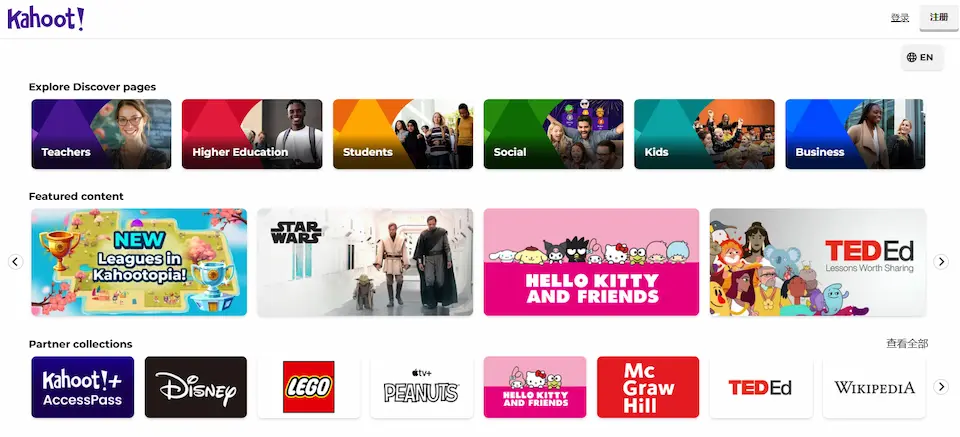
Capterra Rating: 4.7/5
Key Features:
● Gamified quizzes with points and leaderboards for engaging learning experiences.
● Detailed analytics and reports for performance assessment and progress tracking.
● Mobile-friendly platform for accessing quizzes from smartphones and tablets.
Kahoot allows teachers to make enjoyable, game-like challenges based on your listening skills by inserting sound into quiz questions. Its collaborative tools also facilitate collaborative creation of quizzes, as well as teachers sharing resources.
Designed for educators, trainers, and presenters, Kahoot! Quiz Maker offers a dynamic and immersive learning experience that captivates participants of all ages.
6. ClassMarker
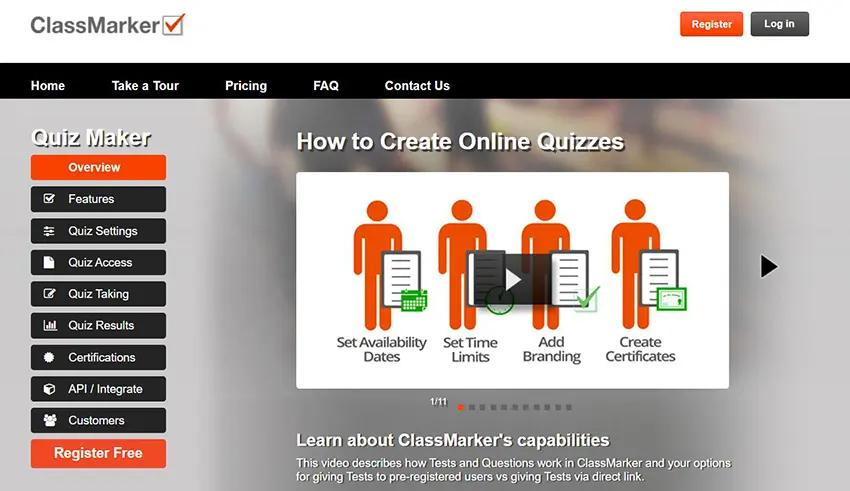
Capterra Rating: 4.7/5
Key Features:
● Integration with popular learning management systems (LMS).
● Certificates and badges for successful test completion.
● Group management and bulk user import for easy administration.
ClassMarker offers a simple yet powerful test creation interface, allowing users to create customized listening skills assessments with various question types, including multiple-choice, fill in the blanks, and essay questions. This secure web-based testing solution enables instructors to design strong listening tests with integrated sound and a wide range of questioning options, guaranteeing a consistent assessment of student understanding. It features detailed reporting features for analyzing performance.
7. ProProfs Quiz Maker
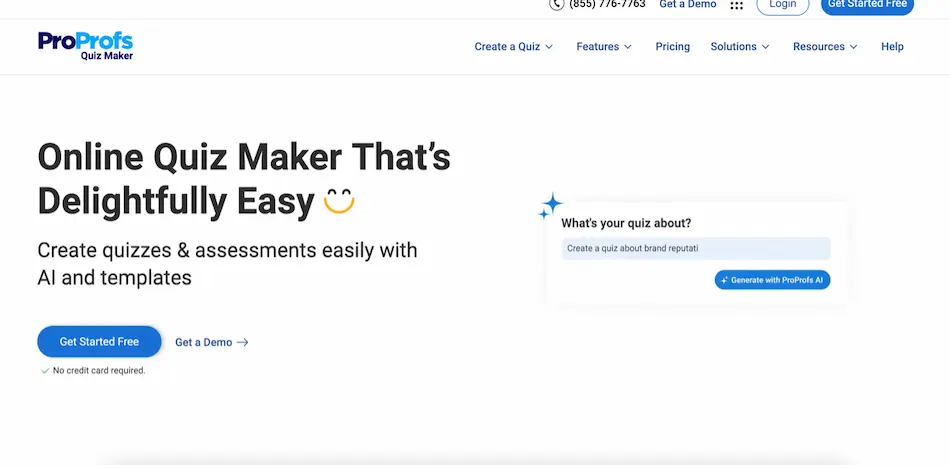
Capterra Rating: 4.5/5
Key Features:
● Multimedia integration and answer question with audio attachment.
● Branding customization and white label URL supported.
● AI question generator to create engaging questions.
ProProfs quiz maker facilitates incorporation of multimedia in the form of integrated audio and video in listening questions for varied contexts. It also has customizable brand options and compatibility with additional marketing and learning tools.
The software offers a user-friendly interface that allows users to create quizzes quickly and easily. The platform provides a wide range of question types, including multiple choice, fill in the blanks, matching, and more, enabling creators to design quizzes tailored to their specific needs.
8. EasyTestMaker
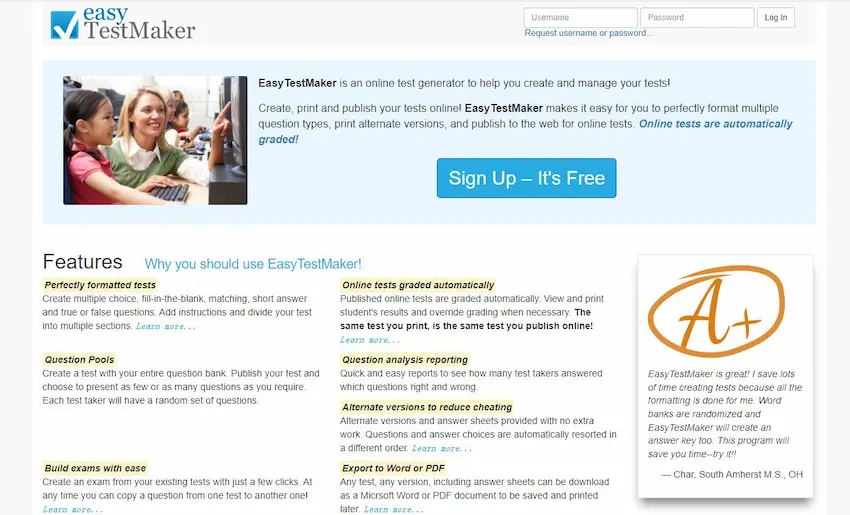
G2 Rating: 4.2/5
Key Features:
● Straightforward audio questions creation and distribution.
● Provide immediate feedback to test-takers and access detailed analytics for performance analysis.
● User-friendly interface for easy navigation and intuitive exam experience.
EasyTestMaker has a friendly interface for generating listening comprehension tests with inline audio questions and allows multiple delivery options, such as online or printable, with a question banking feature for effective test composition and management.
9. Formplus
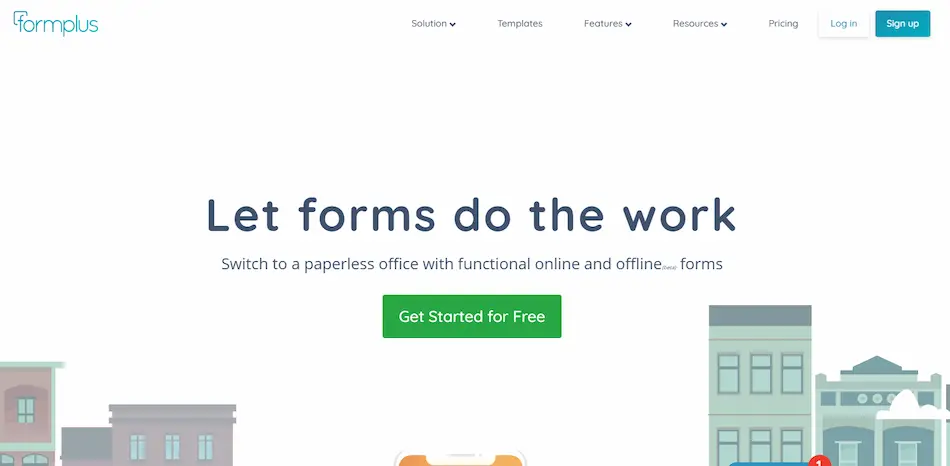
G2 Rating: 4.3/5
Key Features:
● Audio Upload to present content in an interactive format for enhanced engagement.
● Brand customization options for cohesive visual representation.
● Lead capture forms for effective lead generation..
Formplus has a simple audio upload or record feature within a form for generating listen assessment questions, powered by additional features such as conditional logic for adaptive testing. It also supports easy collaboration in quiz development and results analysis.
With its intuitive interface, Formplus makes it simple to design and publish interactive reading and listening quizzes that measures the knowledge of students.
How to Make A Listening Skill Quiz with Audio in OnlineExamMaker?
OnlineExamMaker has a simple interface for developing listening skill quizzes with embedded sound. Here are the step-by-step instructions:
Create Your Next Quiz/Exam with OnlineExamMaker
Step 1: Sign up or log in
Sign up for a free account or log in to your current OnlineExamMaker account.
Step 2: Create a new exam
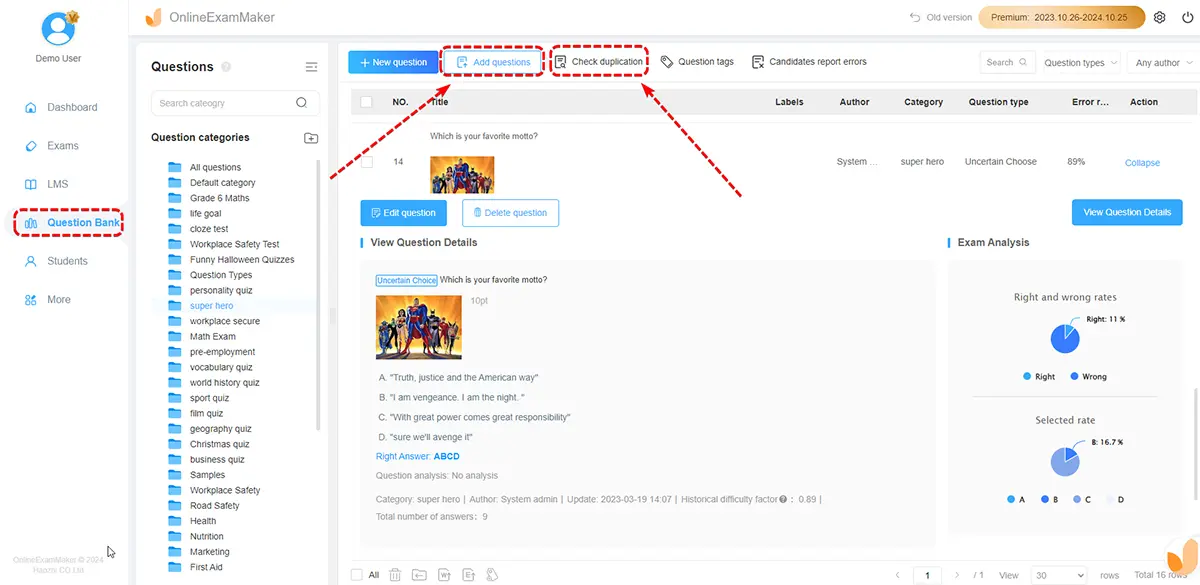
Click on the “Exams” tab and then select “New Exam.”
Step 3: Add questions
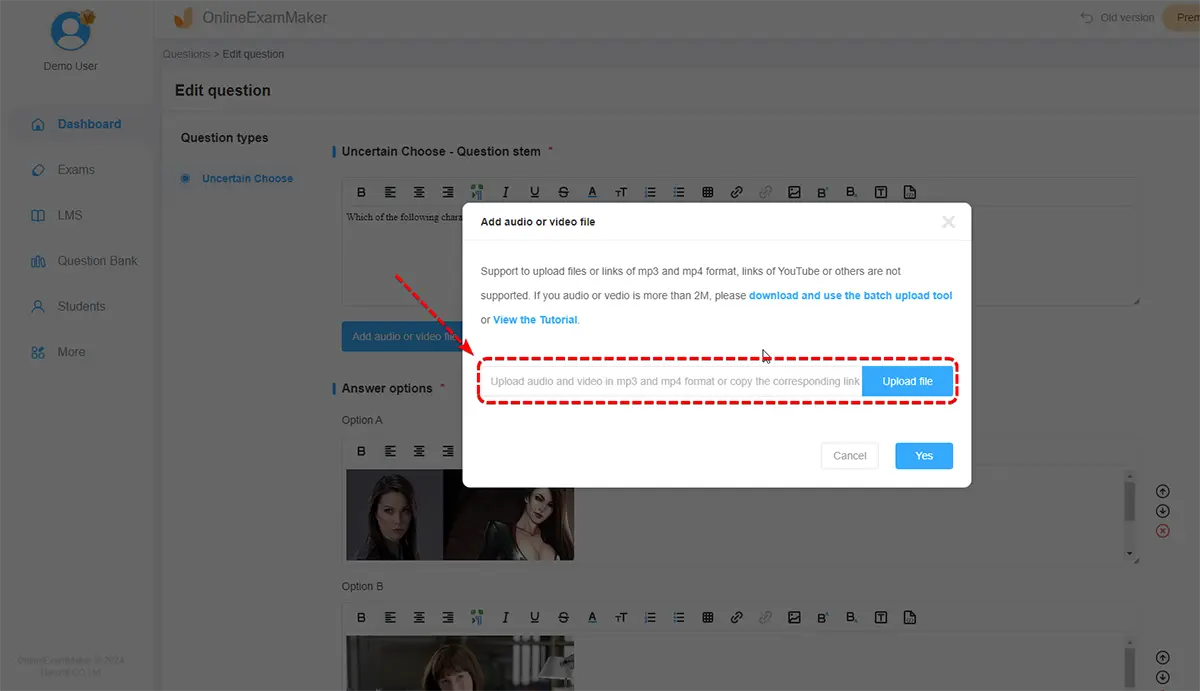
Click the “Add questions” button. Select a type of question appropriate for assessment through listening, e.g., “Multiple Choice,” “True/False,” or “Fill in the Blanks.”
In the question editor, search for an “Insert Audio” or “Multimedia” option. Click it, then upload your audio file (MP3, WAV, etc.) from your computer. You might also be able to paste a URL of an audio file. Write your question in relation to the audio clip. Make your question specifically test the listener’s comprehension of the contents of the audio clip.
Step 4: Save exam settings
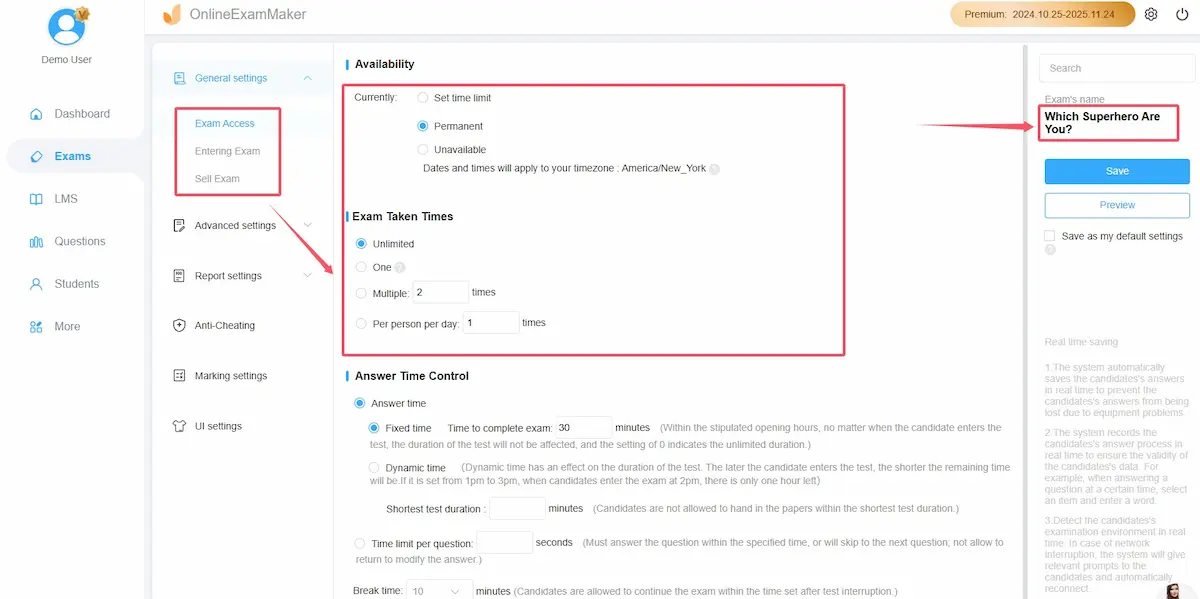
Configure the exam settings you need, then you can click “Save” in order to include the question in your quiz.
Step 5: Share with students
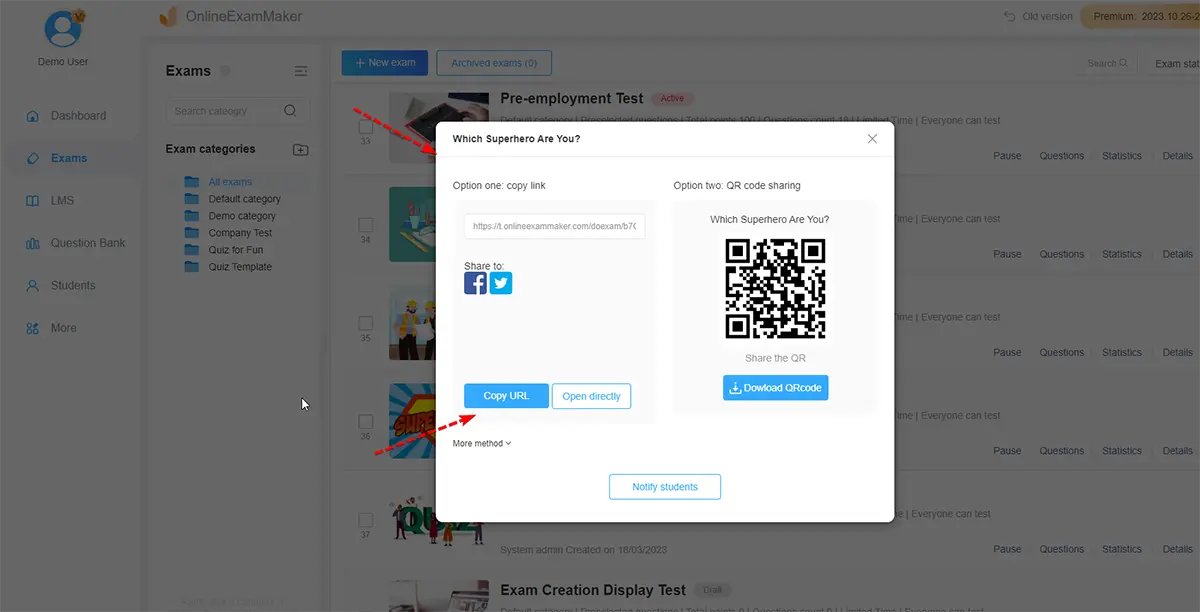
Provide the distinctive exam link or embed code with your students so they are able to access and attempt the listening skill quiz.
As teachers confront the changing future of schooling, the management of accurately evaluating, as well as truly developing, students’ listening skills will continue being a top priority.
The use of software for assessing listening skills brings a new paradigm to this vital mission, giving teachers practical, effective, and data-rich tools with which they can better understand their students’ hearing comprehension skills. The nine software solutions considered in this article are a multipurpose group with a varied array of features and functions in support of varied educational purposes and environments. From the ease of sound integration and automatic scoring of OnlineExamMaker, through the game-like quiz modalities of Quizizz and Kahoot!, these tools give teachers the power to break free from the restrictions of traditional methods of assessment, so they can design more real-life, more captivating tests of listening competence.
With the use of technology, teachers not only simplify the assessment process but also achieve valuable insights that drive tailored instructional approaches and individualized learning plans. The in-depth reports and analytics available in most of these programs help teachers identify precise domains where students are performing better or worse, through which they can adapt their instructional methods in response to unique needs and foster ongoing progress in hearing skills. Also, the game-like, interactive components provided by some tools can improve student motivation and involvement, rendering the assessment experience a more active, more enjoyable learning process.